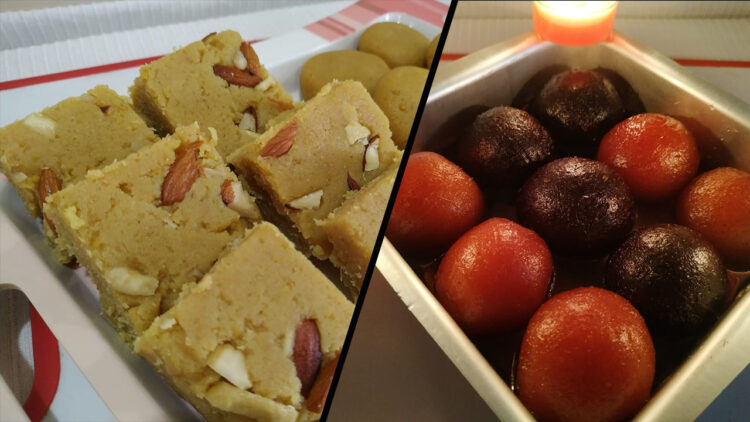Bhubaneswar: The recent raids by Food Safety officials at various confectionary shops and manufacturing units in both Cuttack and Bhubaneswar have raised concerns over the quality of ladoos or sweets that you might be thinking of gifting to your near and dear ones on the occasion of Diwali.
There are chances the sweets you buy in the market could be adulterated and thus harmful for health causing a variety of stomach problems including acidity, colitis, IBS, etc if consumed.
The easiest solution to it is making your own sweets at home. Stop making excuses that you can’t cook. In this digital age, hundreds of recipes are available in both written and video formats. Below are a variety of step-by-step tutorials of some delicious sweets.
Kala Jamun & Gulab Jamun:
Kala Jamun and Gulab Jamun are just the same, the difference is only in the colour and texture. Kala Jamun just has a dark colour that is achieved by deep frying the jamuns for some extra time. This sweet is popular in India, Nepal, Pakistan, the Maldives, and Bangladesh, as well as Myanmar.
Besan Coconut Barfi:
Besan Coconut Barfi is another mouth-watering delicacy you can try this Diwali. It is a North Indian sweet popularly made for festivals.
Rasagola:
How can we forget the controversial sweet Rasagola also known as Rosogolla, Rosgola, or Rasgulla. It is a South Asian syrupy dessert popular in the Indian subcontinent and regions with South Asian diaspora. A day dedicated to the sweet is celebrated every year in Odisha.
Motichoor Laddu:
Motichoor laddu or Boondi laddu is another sweet made from bengal gram flour (besan) based boondi. It is often served on festivals such as Raksha Bandhan and Diwali. The recipe for this laddu originated in north India, however, it is now popular throughout the Indian subcontinent.
Pheni/Khaja:
Pheni/ Khaja is a traditional sweet dish of Odisha, one of the “Chappan Bhog” (56 types of food served as prasad) of Jagannath Temple, Puri. It is an Indian deep-fried pastry, commonly filled with fruit or soaked with sugar syrup.


